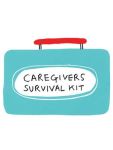
“My Engine”
My engine has been derailed by something completely unexpected,
Affected by an accident that makes me feel isolated, even rejected.
The aftermath is daunting, unplanned and hard to withstand,
I realize that, unless you’ve experienced it, it’s difficult to understand.
This is my attempt, to the best of my ability
To explain what happened to me, for it is my responsibility.
Imagine if you will a freight train with cars, caboose and engine,
The engine is that on which all else is dependent and contingent.
That is the part of me that was injured, hurt and broken,
That is the physical part of which I can explain and be well spoken.
But then there are the emotional and psychological effects too,
Those are more difficult to understand and explain to you.
Sometimes my engine runs out of steam and you think I’m being lazy,
But my engine needs rest and I feel foggy, confused and a bit hazy.
And then there are the moods, irritable, angry and often depressed,
I don’t mean to take it out on you and I know it leaves you stressed.
But it’s really important that you understand this dilemma I’m in,
For it’s you, the normal world, on which I depend.
People can be insensitive about what my disability shows,
They even make jokes about what they don’t know.
I hope that my words will help set your mind at ease,
You may share them with others, if you so please.
Tell them I’m still here, though I may seem changed or strange,
I’m really still me, just amended and slightly rearranged.
-jmf






